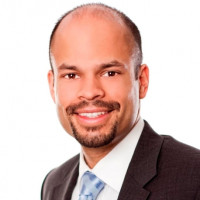KuppingerCole's Advisory stands out due to our regular communication with vendors and key clients, providing us with in-depth insight into the issues and knowledge required to address real-world challenges.


Unlock the power of industry-leading insights and expertise. Gain access to our extensive knowledge base, vibrant community, and tailored analyst sessions—all designed to keep you at the forefront of identity security.
Get instant access to our complete research library.
Access essential knowledge at your fingertips with KuppingerCole's extensive resources. From in-depth reports to concise one-pagers, leverage our complete security library to inform strategy and drive innovation.
Get instant access to our complete research library.
Gain access to comprehensive resources, personalized analyst consultations, and exclusive events – all designed to enhance your decision-making capabilities and industry connections.
Get instant access to our complete research library.
Gain a true partner to drive transformative initiatives. Access comprehensive resources, tailored expert guidance, and networking opportunities.
Get instant access to our complete research library.
Optimize your decision-making process with the most comprehensive and up-to-date market data available.
Compare solution offerings and follow predefined best practices or adapt them to the individual requirements of your company.
Configure your individual requirements to discover the ideal solution for your business.

Meet our team of analysts and advisors who are highly skilled and experienced professionals dedicated to helping you make informed decisions and achieve your goals.

Meet our business team committed to helping you achieve success. We understand that running a business can be challenging, but with the right team in your corner, anything is possible.




And the panel is about fighting the cybersecurity drops crisis. So the people here are Che of MHP, a partial company, ULA from the trend Institute. And then we have, again, troll Hamans of Microsoft, which are joining online. And then we have on the stage with me, you core of Toland Isaac. And so as discussed or as mentioned, the seam for today will be about fighting the cybersecurity chops crisis.
And, and we had started with the keynotes in the morning. We had already, these talks about the fight for, for talent.
And so, so maybe what we best do is we start with the quicker introduction of yourself, very short brief, where, where you maybe say a little bit about your, your person, your role and, and how you you see, or how are you affected by that situation? So, Jessica, do you wanna start?
Yeah, I'm happy to so hello for my side as well. So yes, I'm Jessica, I'm working at MHP, a Porsche company, which is an it and management consultancy that does operate globally, but has a very strong focus on the German market. And I worked there for three years now. And if I look at the, yeah, the demands that I do have to fulfill, and it's definitely a very strong technical focus on profiles and talents that we are looking for. Okay. Sorry. I was just muted. Yeah.
My name is Ola I'm the CEO of Trendon Institute Trendon is an Institute which focuses on market research in the terms of labor market. So all topics connected with labor market, talent management, recruiting people development. These are topics we are, we do research on, we do it globally. So we're serving about 200 to 250,000 people yearly, worldwide. And so actually we, our company itself, we, we don't have cybersecurity experts for now that might change in the future. But so I'm from the point of research. I instituted this in this panel. Okay.
Joel, Good morning. Joel Hamans located in the UK. I've been with Microsoft for six and a half years now. And I guess some of the key achievements or responsibilities have been building our cybersecurity business units, both from a commercial and engineering perspective from zero heads, five years ago to the hundreds and hundreds of heads that we see across Amir and globally today. I guess the biggest constraint for me was when I started this gig five years ago, I had to hire maybe a dozen people.
And again, as you've, as we've touched on it's it's now in the hundreds. So it's, it's finding candidates on mass. Okay. Last at least you. Yes.
Hi, my name is UR I'm well for over 20 years in the it service and the security industry since the beginning of the year, I'm, I'm heading a company called T ISAC. So this is a cyber security company with 180 experts. I have to say about 180 experts. And that comes already to the problem statement because today it might be a hundred seventy eight, a hundred seventy five tomorrow. It might be 182. So there is attrition in, in this, in this area and with this, so retention is I'm heading the company. So I'm the managing rector.
And with this retention of talents of the experts is the biggest task I have currently besides of course gaining customers because we, we are serving around 500 customers with consulting, testing, and managing services manage Services. Okay. You're gonna, maybe let's get started is the first question to, to everyone started with you, which is, I, I think one of the, probably the basic question is how do you see the state when you need cyber security, talent, and, and what are from your perspective, the biggest challenges you're, you're you're facing in your daily business. Yeah.
Well, it's, I think it's fair to say that the, the market is currently going crazy. And it's also fair to say, and to assume that anybody in our company gets a request every week in the average. So I would, we saw a really interesting job, your, your presentation on how LinkedIn is, is used and yeah, so I'm, I always, I always fear the date when we have promotions and people are posting no, I'm a senior security person.
That is, oh my God. Yes. I know that, but you shouldn't let everybody, everybody else know. So I think that's the biggest, and it's, it's not always about, it's not always about money. And this is why I say, if it comes to, to retention, you have to provide, and you have to be a purpose driven organization. Soche Checo what would you have? Actually, I do totally understand this situation because it's quite similar at MHP or at our company. That for me, it's not only cybersecurity that we are focusing on.
So this is definitely a part of MHP, but we do have a lot of different areas where we cooperate or where we operate within the technology, different technologies. And for us, it's actually exactly the same as soon as we hire people. Our first goal is definitely to retain them to, you know, make them or create a happy place for them. And actually also give them projects where they really feel like they have a proper purpose. Okay. So this is a very cool project. This is something where they can actually develop themselves too. So they want to see, okay, what am I actually doing here?
And is this really something that I can picture myself in the, in the team and the company. And of course also what will be the main result. And can I build up on that? So it's very important to have a proper story for technical talents within the own company. Isn't easier for where people say, I, I want to work at Microsoft.
Yeah, absolutely. So trust me, this wasn't the case five years ago, when I used to use Microsoft and security in the same breadths, I think people used to kind of cough at the idea that we was a, a security organization or we was turning into one. So my job was, I would like to think a lot harder than it is today.
Trust me, it still has its constraints. But I think today people look at Microsoft and, and the culture and they tend to join for the culture first and foremost, before they join for the innovation and, and the product lines that they're gonna be working in. So I think OSSI culture is, is absolutely critical.
And again, drawing back on some of my slides earlier on today, again, culture is absolutely key when we are looking to hire again, I've kind of touched on the thought of, you could have the greatest security products in the world, but if you do not get the culture, right, it is highly, highly likely that candidates are gonna get turned off. So culture is just as fundamental as the rest of the piece. Okay.
I, I think this, this is already leading culture is, is clearly one of the things. And, and I think when we go look at a bit, little bit in news and, and you from trends probably are very aware of that. We have over the past few, two or three weeks, we had all these news from the us where, where people are leaving, where they are leaving troughs, where they're moving Toros, where we have a totally new situation.
We, we probably never experienced so, or Biro. What is your take on that? Is this something we also have to expect or already seeing in the cybersecurity market? I think it came a little bit in the comment of Jurgen.
Oh, if someone has body promotion, the risk is this person will be hired by someone else, but will we see also such, such a massive change in the, the, the, the, the culture or the, the, the tendency of people staying in organizations? You mentioned the, the great resignation in the us, hundreds of people are quitting their jobs. I think if you, if you compare that into to Europe or especially Germany, this is the market we have the most data about. It will not be exactly the same because people in Germany or you are a little bit more secure or have a, have a higher demand on job security.
And then it seems to be in the us. So the, the impact will be not the same. Although the people here think the same. We had a survey during the last Christmas phase. So Christmas 20, 20, what are your, your goals for the next year? And the top goal for it and professionals was to change their jobs.
Also, they haven't done that because crisis hit us again, there was a few more waves with the pandemic and you can clearly see their, they, they love a little bit more job security than in other countries, but the, the goal they had in mind was similar to the go the, the us colleagues have in mind. Okay. Is this a little bit maybe where someone wanted to comment? Just because the, the grass always looks greener on the other side of the fence, or what are from your perspectives, maybe you, what, what are you the reasons you see behind that?
Well, If people look like to look over the fence yeah. And it, it, it seems to be that the, the grass is greener. There. They are just curious, how, how would it be in another company? So that's sometimes the case. Sometimes it's, it's it's money. And of course, and it's always, it's always a mix of, of reasons why they, why they might leave. And therefore, as I said, provide a, a purpose driven company, stick with your promises when you talk, when you hire them already. Yeah.
Don't overcommit when you hire don't over promise and also very important is development security people like to develop themselves. Yeah. So they are usually intrinsic motivated people. And with this, give them head space, give them time for their certifications, for their trainings, et cetera, et cetera. That's a very, very important part. Yeah. Any addition to that? Yeah. I think got a lot of different reasons, like you just mentioned, and there's another reason what would could drive this.
The situation is we, we, we saw last year in October, or actually it was August to September when the first wave come down and all the companies got a little bit chilled, like, oh, Corona might be coming to an end. And in this situation, our data shows that 64% of the companies in Germany, they took back nearly to zero, the topic of flexible work.
So they, they said, oh, this was Corona. What nice. And it was cool to have flexible remote work opportunities for everyone, but let's be real.
Now, Coronas will come to an end in October, 2020, we will take all that back. One month later, they have to get back to the remote situation since the second wave came. And a lot of people, we, we surveyed, they didn't say that exactly. This is more than a thesis, but you can see in the data, they, they changed their mind about their own employers. Like remote work became extremely important for everyone, especially for it.
And the, the reaction of the employers during first wave. And second wave was like a punch in the face so that a lot of people think, okay, is this still the right employer for me? Okay. So we have a couple of questions coming in here. So what I wanna do given, if we have not that much time left, I'll, I'll raise the question and you signal who wants to pick, and then, then we do one answer in that short answer, a brief answer on that.
So the first one, anyways, for Joel it's from, from his talk earlier, how do you coach hiring managers to identify the skills and competencies that the role requires rather than what the manager wants, which can be two different things. So brief answer.
Yeah, absolutely. So I think that the big one is leveraging data insights.
Again, just leveraging the, the topic of earlier the skills of today, they may be obsolete within no time at all. So we need to hire for the skills of the future. And obviously that brings a differentiated thought process and the ability to adapt, learn, and change at the necessary time. So we look to hire for the skills of the future and how we do that is by data within HR. Okay. Next question. What is the panel's perception on ageism? So ageism treating people of all age equally fair.
So also hiring maybe more older, more younger, or so what is the perception on that in cybersecurity stuffing aside of all the other aspects we have, like dealing with diversity was demand, et cetera, who has an opinion on that, Jordan? Well, I have to say we, our average age is currently end of the thirties.
Some, something like this. We have a lot of very experienced people. What I see is also that if, if I would say I would like to have 50% female, absolutely impossible.
So it's, but age isn't, I don't, I don't see this as a, as a topic currently. Okay, great. Next question. Maybe Jessica, how do, how do you attract and target hidden talent?
So, so we learned from troll. There's a lot in LinkedIn, but some people don't update a LinkedIn profile. Some people don't use it.
So how, how do you target these types of people? Mm.
So for us, a proper network or very broad network is very, very important. So of course the word of mouth does count in that too. So if you have core projects, if you hear that the company is training you well, if they, you, and you know, you know, that goes around the world, let's say like that, then, you know, you build up your network and people do believe, Hey, this guy, or this woman is working there and she just, you know, explained a very cool story about the project and the culture that they have there. I might look at it.
So yes, even if they're hidden and LinkedIn or somewhere else. Yeah. So if you have a proper network and build that up, then actually your chances to find a good talent are a little bit better. Okay.
Also, so just be recommendations. Marketing is part of and all the other stuff. Exactly. Last question that's probably one to answer is yes or no, simply we all know that AI will cure everything. So there's the question. Will cybersecurity AI affect the skills charter significant significantly? No. No. Okay. I would agree with that. So we have one minute left and I'd like to give you all of you the opportunity to give one very short, maybe one sentence, one word recommendation to the audience. What is the number one thing to do from your perspective?
Joel, do, do you start entro and Jessica and then Never stop learning, keep sharpening. That sort I'll look at the data because it can reveal a lot of things, how to approach those talents.
For me, it would be planned properly. So Dawn, you know, just again, all the projects without thinking, how realistic is it to find a great people on the market in that time that you want to fulfill the project? We didn't cover recruiting, make your own people the best, best recruiters. Okay. These were, I believe very, very helpful and very, very practical recommendations. Thank you very much for taking the time for this panel. Thank you for delivering all that information. Thank you to everyone for asking question for joining this panel, applause to the panelists, please.